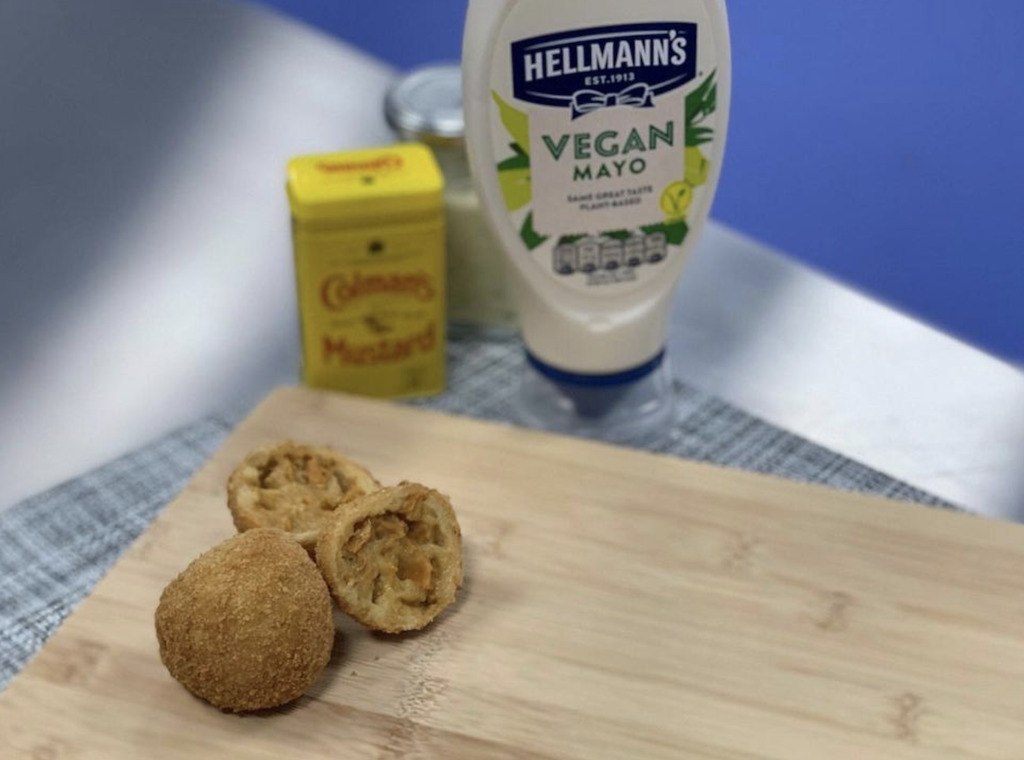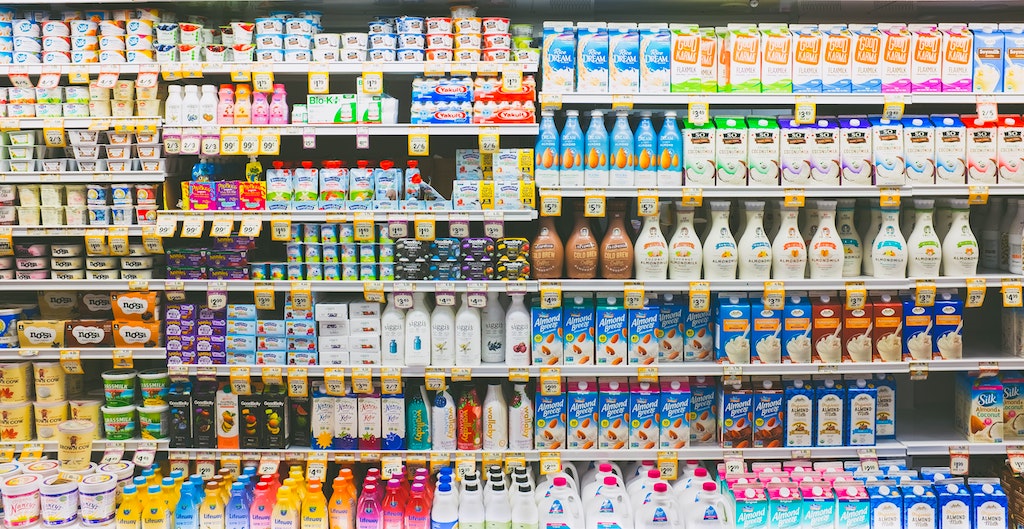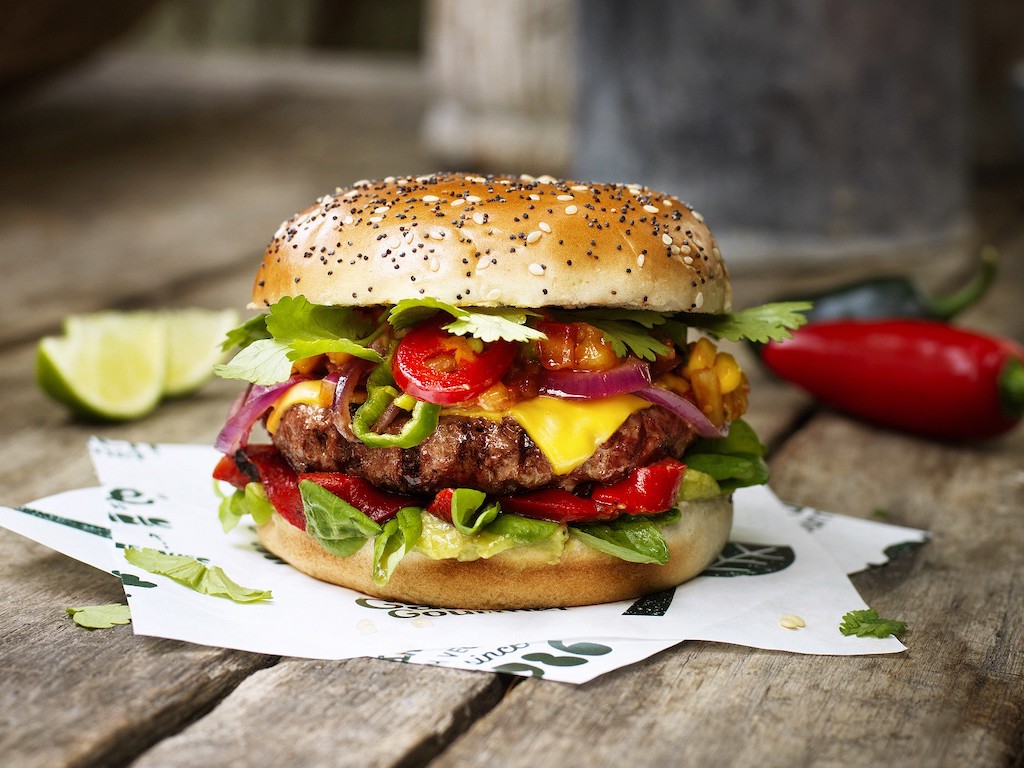5 Mins Read
Almost 30% of the world’s biggest food retailers and producers are now pivoting to alternative protein to keep up with changing consumer preferences, a new report has found. Among some of the “best-performers” actively diversifying their portfolios with plant-based alternatives include Unilever, Conagra, Nestlé and Tesco, with researchers warning other major food firms about the risk of falling behind on the sustainable protein transition.
Many of the world’s largest food companies are shifting their focus to alternative protein, finds a new report based on five years of investor engagement with 25 leading firms. The report, published by the Fairr Initiative, revealed that 28% of big food firms have already adopted formal targets to increase their share of alternative protein, up from zero in 2018.
The report is a follow-on from the organisation’s 2020 analysis, which described the year as a “watershed in the shift from animal proteins towards plant-based and new protein sources.”
Going all-in on alternative protein

Alternative proteins in the report included both plant-based meat and dairy alternatives, as well as cell-based proteins, such as meat grown directly from cells. Though the latter has only been commercialised in Singapore, some companies have taken to gain a first-mover advantage by investing in the technology ahead of regulatory developments around the world.
7 out of 25 companies assessed have set clear protein diversification targets, with Unilever, Conagra, Nestlé named as the “best-performing” producers, while British retailers Tesco and Sainsbury’s were the top-ranking major retailers. Examples of targets include Unilever’s commitment to reach $1.2 billion in meat and dairy alternative sales by 2027, and Tesco’s pledge to increase sales of meat substitutes by 300%.
M&S was also praised for its recent partnership with mycoprotein food tech Enough, as part of its goal to grow its in-house Plant Kitchen range of vegan ready meals, meat and dairy substitutes. Unilever has tapped the startup as well to grow its plant-based meat range.

Recognising the environmental impact of animal-based food production, food companies are beginning to make these alt-protein transition targets as part of their sustainability ambitions.
48% of the big food firms, for instance, are now tracking and making public disclosures about their emissions from livestock farming, with 52% setting net-zero emission goals. Globally, animal agriculture is one of the largest contributors to climate change, driving nearly a fifth of GHG emissions.
Amazon, Costco and Kraft Heinz: the worst-performers
The Fairr report further spotlighted the companies that are not making moves towards sustainable protein diversification, despite the fact that plant-based dollar sales have grown 43% within just two years. Among some of the “worst-performers” named in the report included Amazon, which owns Whole Foods, as well as Costco and Kraft Heinz—all North American players.

“US companies underperform dramatically in comparison with their global peers,” noted the researchers. “Leading US retailers Amazon, Costco, Kraft Heinz and Kroger do not report their Scope 3 emissions relating to animal agriculture. Furthermore, Costco grew its beef sales by 34% in 2020 in contrast to 2019, and does not disclose how it is addressing the environmental impacts of its meat supply.”
This comes despite the fact that plant-based retail sales have skyrocketed since the pandemic. In 2020, vegan sales in retail channels alone doubled to $7 billion.
The Fairr report warns that these companies are now falling “behind the curve” and “failing to protect themselves from costly climate risks from meat and dairy production, reputational damage and looming regulation on protein transition.”
2021 as the ‘year of cultivated meat’

One key takeaway from Fairr’s assessment was the rising attention that big food is now paying to cell-based proteins. Billing 2021 as the “year of cultivated meat”, the report cited the huge influx of private investment into the sector, with funding hitting $506 million within just the first six months of this year alone.
Major food companies that have shown interest in the technology include Nestlé, which has forged a new collaboration with Israel’s Future Meat Technologies to “explore” the novel protein and how it could be incorporated into its portfolio. It marked the first time one of the world’s 25 largest food firms partnered with a cultivated protein startup.
“This has been the year of cultivated meat with a record $506 million invested in lab-grown meat alternatives, which is now taking its place alongside plant-based protein on investment agendas,” commented Jeremy Coller, chair of the Fairr Initiative, which was set up by the Jeremy Coller Foundation.

Jenn-Hui Tan, stewardship and sustainability investing head at Fidelity International, advised food firms to take advantage of the sustainable protein shift as the global health and climate agenda increasingly sharpens its attention to the footprint of food.
“The shift towards sustainable proteins will prove an essential tool for addressing serious climate risk, whilst also meeting the demand for nutritious food in a resource-scarce world,” explained Tan. “We’re seeing increased regulation to facilitate that shift: Canada, Israel, and Singapore have positioned themselves as first-movers.”
“With other countries poised to follow suit, investors should be aware of the impacts and opportunities within this shift and food companies should be innovating at pace.”
Lead image courtesy of Nestlé.




